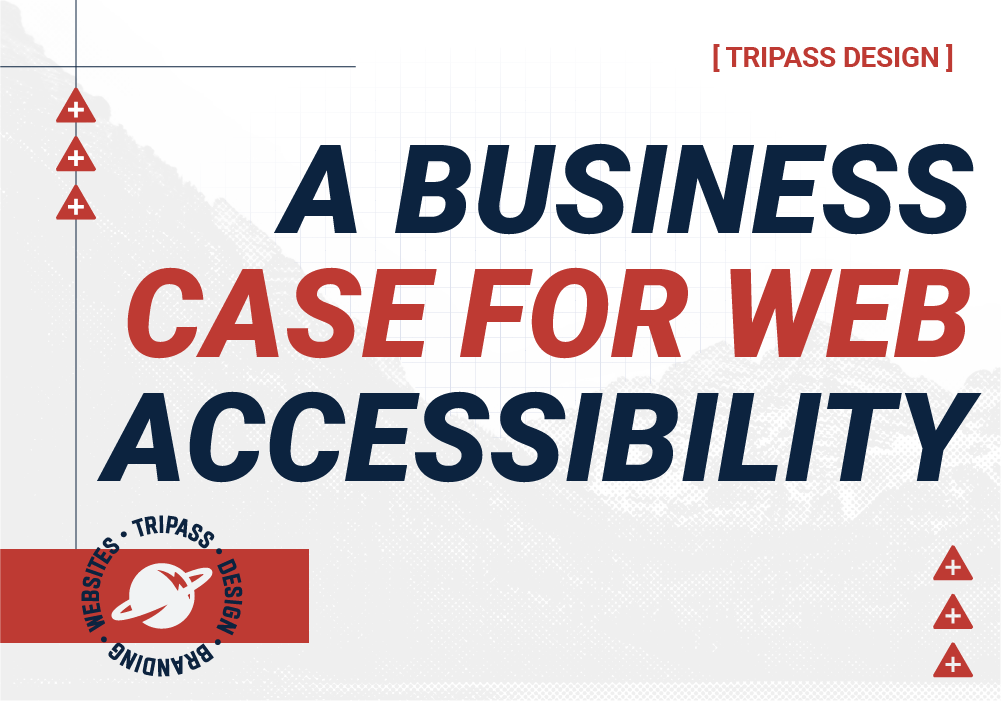Imagine you’re a customer in need of a service. Maybe your sink is leaking, and you’re frantically searching for a plumber, or your lawn is overgrown, and you’re desperate for a landscaper to rescue your yard. You hop online, click on a promising website, and within seconds, you decide: Does this business look trustworthy enough for me to call?
For service-based businesses, trust isn’t just a “nice to have.” It’s the foundation that turns curious visitors into paying clients. And in the digital world, your website is where trust starts—or where it ends. If your site feels outdated, unprofessional, or confusing, potential clients will hit the back button faster than you can say “free estimate.”
But what makes a website trustworthy? Let’s dig into the essential elements, from professional design to honest communication, that help build credibility and confidence in your brand.
The Role of First Impressions
You’ve heard it before: you never get a second chance to make a first impression. When it comes to your website, visitors form an opinion about your business within seconds. A clean, modern, and functional design signals professionalism, while a cluttered or outdated site can make people question your reliability.
Think of your website like a storefront. If the floors are dirty, the windows are cracked, and the sign is missing letters, would you walk in? Probably not. The same goes for your digital presence. A polished website isn’t just about aesthetics—it shows visitors that you care, that you’re serious about your work, and that they can trust you with theirs.
A professional design doesn’t mean over-the-top animations or flashy graphics. It means simplicity, clarity, and consistency. Use high-quality images, stick to a cohesive color palette, and ensure your site is easy to navigate. These small details send a big message: “We’ve got our act together—and we’ll take care of you, too.”
Make Yourself Easy to Find
One of the quickest ways to lose trust is to make visitors hunt for your contact information. If someone has to dig through three pages just to find a phone number or email address, they’ll assume you’re not interested in hearing from them—or worse, that you’re not a real business.
Clear contact information should be front and center. Place your phone number, email address, and physical location (if applicable) in your site’s header, footer, or on a dedicated Contact Us page. For mobile users, a “click-to-call” button is a must. Convenience breeds trust.
Here’s a scenario: it’s the middle of July, and someone’s A/C has just gone out. They’re hot, stressed, and desperate for help. They’re not going to scroll endlessly looking for your number. They’ll call the business that makes it easiest to get in touch. Don’t miss out on that call because your contact info was hidden away.
Build Human Connection
Have you ever walked into a small local business and been greeted by a friendly owner who genuinely cares about their work? It feels good, doesn’t it? Your website can create that same feeling by showcasing the people behind your business.
Add an About Us page that tells your story. Who are you? Why do you do what you do? What makes you different? Share real photos of you and your team, whether it’s a picture of you fixing a leaky faucet or standing proudly in front of your office. People trust people—not faceless brands.
Skip the generic stock photos of smiling strangers. They’re easy to spot, and they don’t add any value. Instead, invest in professional photos or even take authentic snapshots with your phone. A genuine smile and a little personality go a long way in building trust.
Speak Clearly and Honestly
One of the biggest trust killers is confusion. If visitors can’t figure out what you do, how you can help them, or how to hire you, they’ll leave. Fast.
Your website’s content should be clear, concise, and free of jargon. Speak in plain language that your audience understands. If you’re a plumber, don’t say, “We specialize in bespoke water pipe remediation services.” Say, “We fix leaky pipes—fast.” It’s that simple.
Focus on answering the questions your clients are already asking:
What do you do?
Who do you serve?
How can I hire you?
Be honest and straightforward. Don’t overpromise or use misleading language. If there’s one thing people can spot a mile away, it’s insincerity. Trust is built on transparency, so be upfront about your services, pricing, and processes.
Show Social Proof
When was the last time you tried a new restaurant without checking the reviews first? Exactly. People trust recommendations from others more than they trust businesses themselves. That’s why social proof—like testimonials, reviews, and case studies—is essential for building credibility.
Feature glowing reviews from happy clients on your homepage, service pages, or a dedicated testimonials section. Don’t have any yet? Start asking! Most satisfied customers are more than willing to leave a review if you make it easy for them.
Better yet, link to third-party review platforms like Google, Yelp, or Facebook. This level of transparency shows potential clients that you’re confident in your work—and that others are too.
Keep It Secure
Have you ever visited a website and noticed a warning that says, “This site is not secure”? Did you stick around? Probably not. A secure website is non-negotiable if you want to build trust.
At the very least, your site needs an SSL certificate. That’s what gives you the little padlock icon in the browser bar, signaling to visitors that their information is safe. Without it, your site will look like an outdated relic—and worse, visitors will assume your business is, too.
Security doesn’t stop there. Regularly test your site for broken links, ensure all forms work properly, and optimize your load times. A glitchy or slow website erodes trust faster than almost anything else.
Consistency Across the Board
Imagine seeing an ad for a landscaping service with a modern, professional logo, only to visit their website and find something that looks like it was made in the early 2000s. It’s jarring, right? Inconsistency like this creates doubt.
Your branding should be cohesive across all platforms—your website, social media, business cards, trucks, you name it. Use the same logo, colors, fonts, and tone of voice everywhere. This consistency reassures visitors that they’re in the right place and builds recognition over time.
Keep Things Fresh
An outdated website feels like a ghost town. If the last blog post on your site is from 2018, what does that say about your business? Regular updates show visitors that you’re active, engaged, and paying attention.
Consider adding a blog or resource section where you share tips and insights. For example, a landscaper could write about seasonal yard care, or an HVAC technician could explain how to lower energy bills. It’s not just about showing off your expertise—it’s about being helpful and building trust.
Trust Is Earned
Trust isn’t built overnight, and it certainly isn’t built on flashy gimmicks. It’s the result of thoughtful design, clear communication, and genuine connection. Your website is often the first impression people have of your business—make it count.
At Tripass Design, we specialize in helping service-based businesses create websites that don’t just look good but build trust. Whether you’re a lawyer, plumber, social media manager, or landscaper, we understand the challenges you face in standing out and earning credibility. Let’s work together to build a site that turns visitors into loyal clients.
Ready to take the first step? Let’s create something that makes your audience say, “I trust them.”



